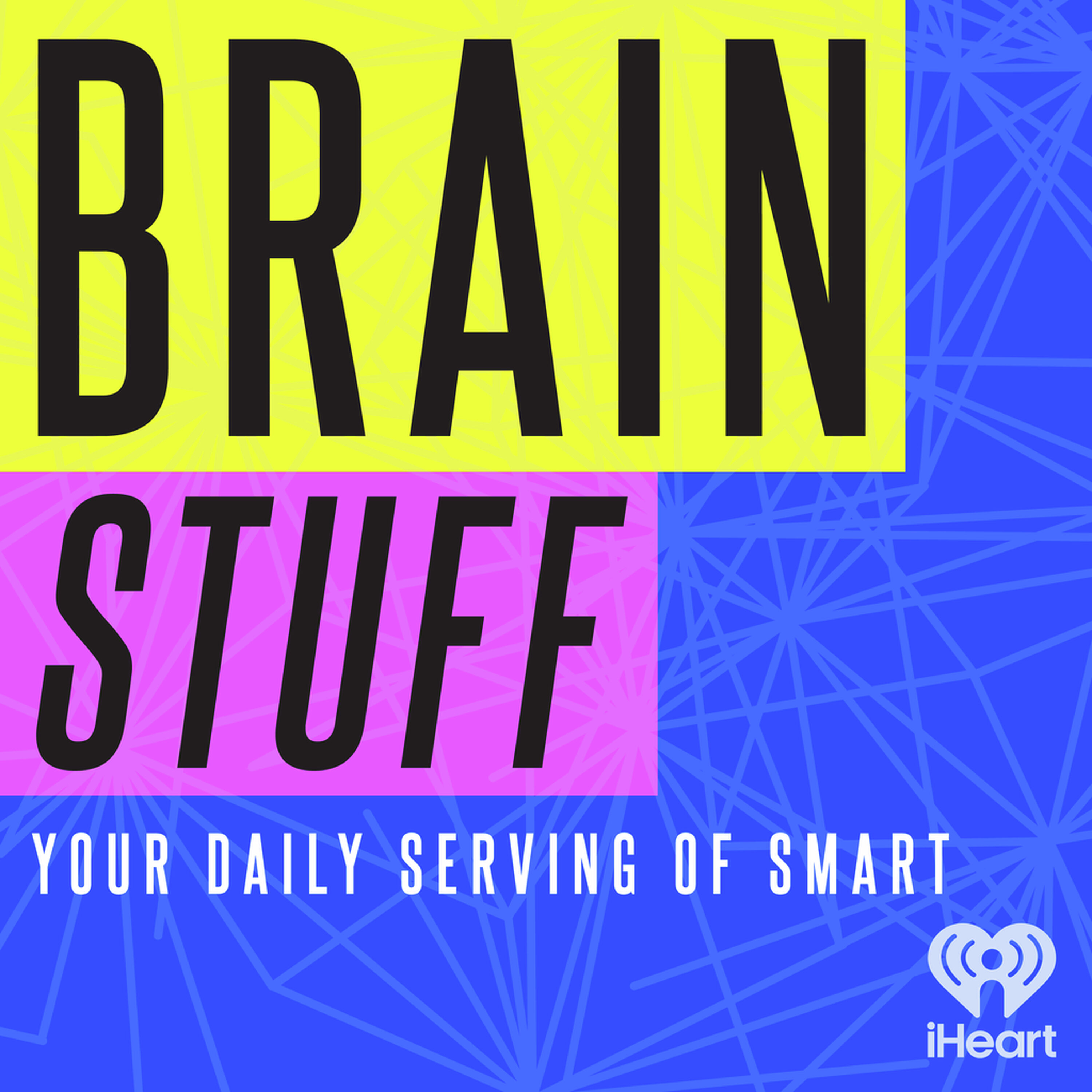

BrainStuff
iHeartPodcasts
Whether the topic is popcorn or particle physics, you can count on BrainStuff to explore -- and explain -- the everyday science in the world around us.
Episodes
Mentioned books

Jul 10, 2020 • 8min
How Did the Harlem Renaissance Work?
The Harlem Renaissance was a period of great social, intellectual, and artistic invention that deeply impacts our world to this day. Learn how it got started and why it was so important in this episode of BrainStuff. Learn more about your ad-choices at https://www.iheartpodcastnetwork.comSee omnystudio.com/listener for privacy information.

Jul 9, 2020 • 6min
How Much of Our Food Do Moths Pollinate?
Moths pollinate more of our food than researchers previously realized. Learn more about insect pollination in this episode of BrainStuff. Learn more about your ad-choices at https://www.iheartpodcastnetwork.comSee omnystudio.com/listener for privacy information.

Jul 8, 2020 • 6min
Do Rainy Days Make Us Sad?
Popular music and video often use rain as a metaphor for melancholy, but does rainy weather really affect our mood? Learn about the psychology (or lack thereof) behind the rainy-day blues in this episode of BrainStuff. Learn more about your ad-choices at https://www.iheartpodcastnetwork.comSee omnystudio.com/listener for privacy information.

Jul 7, 2020 • 8min
What Was the Biggest Snake on Earth?
The Titanoboa cerrejonensis was a massive snake related to modern boas -- but it might've grown to 47 feet (14 meters) in length. Learn about this extinct South American serpent in today's episode of BrainStuff. Learn more about your ad-choices at https://www.iheartpodcastnetwork.comSee omnystudio.com/listener for privacy information.

Jul 6, 2020 • 8min
Why Is There a Crack in the Liberty Bell?
The massive, historic Liberty Bell wasn't always cracked, and wasn't always named that. Learn what history knows (and doesn't know) about the Liberty Bell in this episode of BrainStuff. Learn more about your ad-choices at https://www.iheartpodcastnetwork.comSee omnystudio.com/listener for privacy information.

Jul 5, 2020 • 4min
BrainStuff Classics: How Did the Grandfather Clock Get Its Name?
What we now call grandfather clocks were around for a long time before they got that name. Learn how a pop song renamed them -- and a few legends that may have inspired the song -- in this classic episode of BrainStuff. Learn more about your ad-choices at https://www.iheartpodcastnetwork.comSee omnystudio.com/listener for privacy information.

Jul 4, 2020 • 5min
BrainStuff Classics: Why Did the T. Rex Have Such Tiny Arms?
The Tyrannosaurus rex was a giant predator, but its arms weren't much bigger than a human being's. Learn a few hypotheses about T. rex's arms in this classic episode of BrainStuff. Learn more about your ad-choices at https://www.iheartpodcastnetwork.comSee omnystudio.com/listener for privacy information.

Jul 3, 2020 • 8min
Will the Fires That Made Centralia a Ghost Town Ever Go Out?
Coal fires have burned beneath this Pennsylvania town for decades, driving away inhabitants with continual smoke, ash, and cave-ins. Learn how coal-seam fires work in this episode of BrainStuff. Learn more about your ad-choices at https://www.iheartpodcastnetwork.comSee omnystudio.com/listener for privacy information.

Jul 2, 2020 • 7min
Why Is Real Vanilla So Expensive?
Real vanilla is much more expensive than synthetic vanilla. Learn about the delicate orchid that vanilla comes from and why most vanilla flavoring is synthetic in this episode of BrainStuff. Learn more about your ad-choices at https://www.iheartpodcastnetwork.comSee omnystudio.com/listener for privacy information.

Jul 1, 2020 • 11min
Why Isn't Washington, D.C. a State?
A new bill aims to make Washington, D.C. the U.S.'s 51st state -- but why wasn't it created as a state to begin with, and why have similar bills failed in the past? Learn the history of the District of Columbia in this episode of BrainStuff. Learn more about your ad-choices at https://www.iheartpodcastnetwork.comSee omnystudio.com/listener for privacy information.


